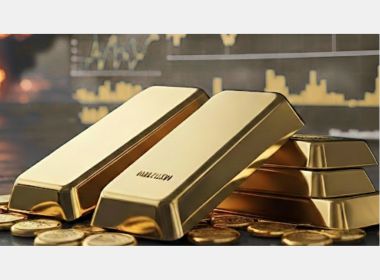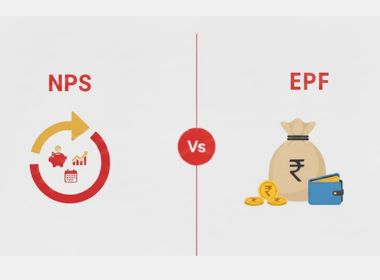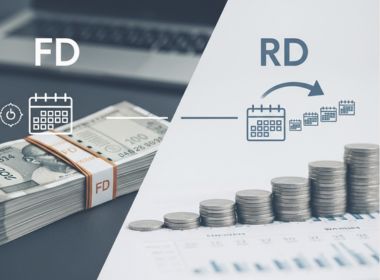Search Suggestions
- Gold Loan
- Money Transfer
- Mutual Funds

What are Exchange Traded Funds (ETFs)?
In recent years, India’s financial market has experienced substantial growth, providing investors with a diverse range of investment options. Among these options, the Exchange Traded Funds (ETFs) have emerged as a popular choice due to their affordability and diversification. Unlike traditional financial products such as mutual funds or stocks, ETFs are passively managed, highly liquid, and come with minimal fees.
Table of Content
- What is an ETF Fund?
- How do ETFs Work?
- Types of ETF
- Why Invest in ETFs?
- Risks of ETFs
- Factors to Consider Before Investing in ETFs
If you are considering investing in ETFs, here is all you need to know about them:
What is an ETF Fund?
An ETF, or Exchange Traded fund, is a financial instrument that holds a diverse portfolio of assets, such as stocks, bonds, equities, and more. They let you invest in a large number of securities at once, offering investors a convenient way to achieve diversification. Also, ETFs often have cheaper fees than other types of funds.
How do ETFs Work?
The underlying assets in an ETF are owned by the fund provider, who creates a fund to track the performance of those assets and offers shares of the fund to investors. While investors own shares of the ETF, they do not directly own the individual assets within it.
Here is a quick overview of how ETFs work:
- The ETF provider selects a group of assets, such as stocks, bonds, or commodities, and creates a basket, each represented by a ticker symbol.
- Investors can buy shares in this basket, similar to purchasing stock in a company.
- Just like individual stocks, ETFs are traded on exchanges throughout the day.
Types of ETF
There are different types of ETFs present in the market to suit different investment goals and risk appetites. Some of the common types include:
- Gold/Silver ETFs: This ETF allows you to invest in the price movements of gold/silver, without you actually having to own the metal.
- Index ETFs: These ETFs replicate the performance of a specific stock market index, such as NIFTY 50 and Sensex.
- Bond ETFs: These ETFs comprise bonds, such as government bonds and corporate bonds. They are ideal for investors seeking security and income.
- Commodity ETFs: These ETFs allow you to invest in the price movements of commodities, such as oil and precious metals.
- Sectoral ETFs: These ETFs focus on specific industries, such as banking, energy, or technology.
Suggested Read: WHAT IS GOLD ETFs: INVESTMENT PROCESS, FEATURES AND BENEFITS
Why Invest in ETFs?
Here are some reasons why ETFs are considered a great investment option:
1. Lower Costs
ETFs allow you access to a diversified portfolio of stocks, equities, bonds, or sectors. This helps spread the risk and improve the potential returns.
2. High Liquidity
ETFs are traded throughout the market hours, just like shares, allowing for flexible entry and exit. This is a key advantage of ETFs over mutual funds, which are settled only at day-end Net Asset Value (NAV).
3. Tax Efficiency
ETFs are generally more tax-efficient than actively managed mutual funds because they tend to generate fewer capital gain distributions.
4. Transparency
Most ETFs regularly disclose their portfolio, allowing investors to make informed decisions about their investments.
Suggested Read: MUTUAL FUNDS VS. ETFs: WHICH ONE IS RIGHT FOR YOU?
Risks of ETFs
While ETFs offer a range of benefits, they do have some risks associated with them, including:
1. Tracking Error
ETFs aim to mirror the performance of an index, but factors like fund fees or rebalancing delays can cause slight deviations. This is known as tracking error, which can affect your overall returns.
2. Liquidity Risk
Some ETFs, especially those tracking niche or less-traded markets, may have low trading volumes. This makes it harder to buy or sell shares without affecting the price.
3. Settlement Dates
ETF sales follow a T+2 settlement cycle. This means, as a seller, your money from ETFs is typically unavailable for reinvestment until two business days after the transaction.
4. Market Risks
ETFs are subject to the same market fluctuations as their underlying assets. If the market or the specific sector of an ETF falls, the value of the ETF will also fall.
Factors to Consider Before Investing in ETFs
Before investing in ETFs, consider these factors to ensure your investment aligns with your financial goals and risk profile:
- Know Your Investment Objective: The first thing is to set clear goals, whether it's long-term growth, income generation, or diversification. Once you have an objective, choose an ETF that aligns best with it.
- Keep Expense Ratio in Mind: While ETFs have expense ratios lower than mutual funds, they can still vary. So, make sure you keep that in mind, as even small fee differences can impact returns over time.
- Check Liquidity: Look for ETFs with high trading volumes and tight bid-ask spreads. This will ensure you can buy or sell shares easily without impacting the price much.
- Understand Tax Impact: ETF taxation can vary depending on the type of ETF and your holding period. Understanding how capital gains and dividends are taxed can help you plan better.
As we conclude, it is clear that Exchange Traded Funds are a simple, low-cost way to diversify your investments. By adopting a well-informed and balanced approach, you can leverage the benefits of ETFs while easily managing the risks.
- Insurance
- Group Insurance
- Health Insurance
- Home Insurance
- Vehicle Insurance
- Life Insurance
- Travel Insurance
- Shop Insurance
CATEGORIES
OUR SERVICES
-

Credit Score
-

Gold Loan
-

Personal Loan
-

Cibil Score
-

Vehicle Loan
-

Small Business Loan
-

Money Transfer
-

Insurance
-

Mutual Funds
-

SME Loan
-

Corporate Loan
-

NCD
-

PAN Card
-

NPS
-

Custom Offers
-

Digital & Cashless
-

Milligram Rewards
-

Bank Mapping
-

Housing Finance
-

#Big Business Loan
-

#Gold Loan Mela
-

#Kholiye Khushiyon Ki Tijori
-

#Gold Loan At Home
-

#Sunherisoch
RECENT POSTS

Understanding Gold Bees: How it Works, Net Asset Value, Returns and More
Know More
Multi Cap and Flexi Cap Mutual Funds: How Are They Different?
Know More
Online Personal Loan vs. Offline Personal Loan - Which Is Better for You?
Know More
10 Tips to Improve Chances of Personal Loan Approval
Know More
10 Factors Affecting Mutual Fund Performance Explained Simply
Know More
10 Key Factors That Affect Your Personal Loan EMI
Know More
What Is Fine Gold? Meaning, Purity (999), Uses & Price Explained
Know More
Gold vs Silver: Which is Better as an Investment?
Know More
Why Gold Is a Safe Haven Asset: Meaning, Benefits & Real Examples
Know More
Gold or Bitcoin - Best Investment for Value Retention
Know MoreFIN SHORTS

The Best 7 SIF Funds of 2026: A Better Way to Invest
Know More
Gold Price Hits ₹1,40,000: How It Impacts Gold Loan Amounts
Know More
How to Check Loan Number: Step-by-Step Process
Know More
How to Open an SIP Account: Online and Offline Process
Know More
How Do I Apply for MSME Certification Online in India?
Know More
7 Important Reasons to Choose Hallmark Gold When Buying Jewellery
Know More
What Are Co-Pay and Deductibles in Insurance Policies?
Know More
Should You Take a Loan Against Your Mutual Fund or SIP?
Know More
Top 5 Best Mid-Cap Mutual Funds to Watch in 2026
Know More
Are Personal Loans Right for Retirees? Key Points to Consider
Know More
What Happens to a Personal Loan After the Borrower Dies?
Know More
Best Loan Choices for Credit Scores of 580 and Below
Know More- South +91 99469 01212
- North 1800 313 1212





